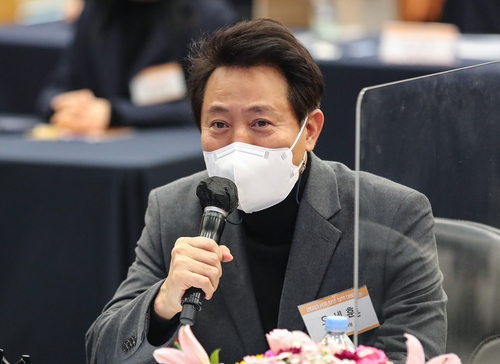 |
Seoul Mayor Oh Se-hoon (Yonhap) |
The Seoul city government said Tuesday it will launch an experimental welfare program aimed at providing regular subsidies to low-income households in the capital under Mayor Oh Se-hoon's initiative.
Under the project, a total of 800 households in the bottom 33 percent income bracket and with less than 326 million won ($272,575) in assets will be given monthly subsidies over the next three years, according to the city office.
A total of 19.5 billion won of the city budget will be spent to finance the three-year welfare program, including 3.5 billion won earmarked for this year, with payments scheduled to kick off in July.
"Through this experimental safety income program, the city will closely study ... what kinds of future welfare systems could make sure all Seoul citizens, with no one left behind, could lead a respectable life without losing their dignity," Mayor Oh said.
The city government said it will randomly select the first batch of 500 households through an online application process from March 28-April 8.
They will be chosen from households whose monthly income is less than a half of the national median income levels and entitled to receive monthly complementary income from the city over the next three years.
Next year, another batch of 300 households will be selected from those whose income ranges between 50 percent and 85 percent of the national median income levels, for a two-year subsidy program.
The size of the subsidies will be set individually for each household so that they can make up for half of the gaps between the households' income and 80 percent of the national median income.
The city government will also operate a comparative study on how the income subsidy program affects the recipient households in a span of five years, it also said.
According to the city, 72.8 percent of Seoul's 1.21 million low-income households have no access to national welfare benefits. (Yonhap)





![[Out of the Shadows] Seoul room clubs offer drugs to compete for clientele](http://res.heraldm.com/phpwas/restmb_idxmake.php?idx=644&simg=/content/image/2024/11/05/20241105050566_0.jpg)

